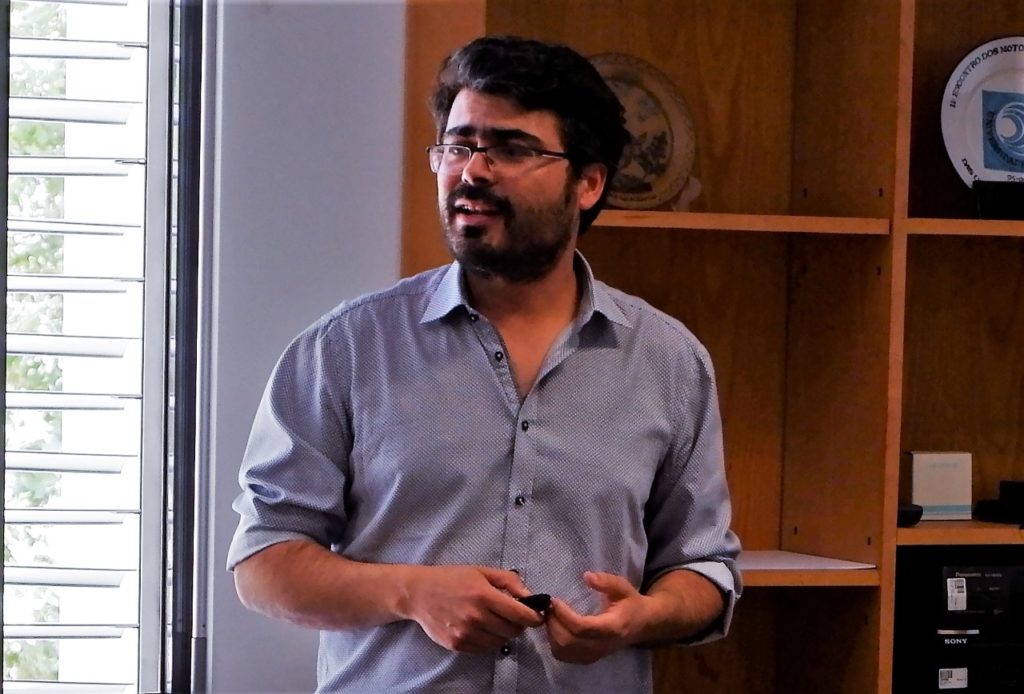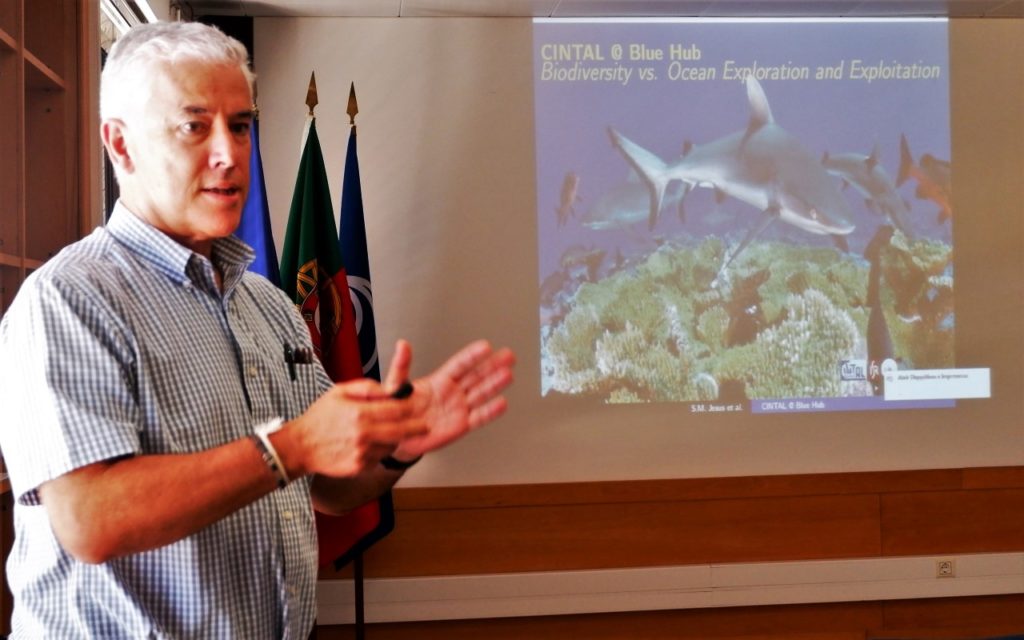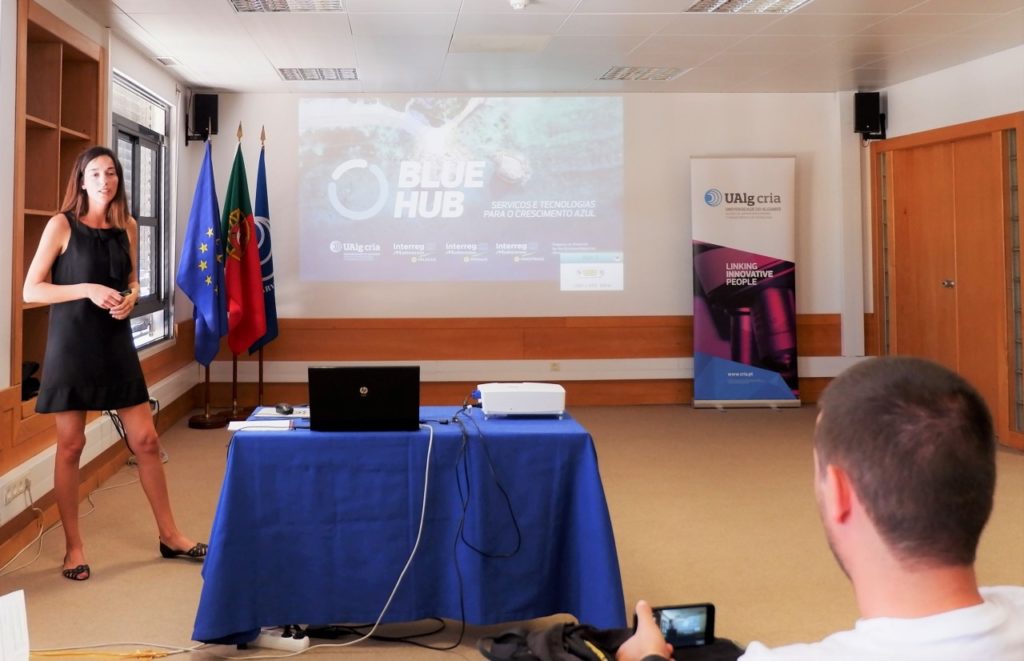There is a Hub Azul in formation in the Algarve, where research is carried out, but also business initiatives linked to the sea. The University of Algarve took advantage of the fact of being a partner of three European projects linked to marine renewable energies and maritime surveillance to launch a cluster in the region, which could leverage what is already being done here.
«This is a very interesting area, as it has enormous growth potential and there is a lot of knowledge at the University of Algarve and with international partners in these areas», he summarized to Sul Informação Hugo Barros, director of CRIA – Ualg's Entrepreneurship and Technology Transfer Division, which is at the origin of this Blue Hub Algarve.
This was, moreover, one of the main ideas that came out of the conference “Blue Hub – Services and technologies for Blue Growth”, which took place in July at the University of Algarve.
Researchers and entrepreneurs gathered in the seminar room of the Ualg rectory, on the Campus de Gambelas, in Faro, to discuss the future of the blue economy in the region, with a special focus on the areas of renewable energy and surveillance.
The conference was held within the scope of the projects “PROteuS”, “Pelagos” and “Maestrale”, of which CRIA is a partner. All are under the same “hat”, the MED program of the European Union, and have a common goal: to create a cluster for the Mediterranean.

In this way, CRIA decided to «create an Algarve unit for these sectors. With the Hub, we intend to streamline actions with the market and identify technologies, products or services that can be transferred to companies, in the Algarve or in the regions that make up the Mediterranean cluster», revealed Ana Gonçalves, project manager at CRIA, to our newspaper.
The starting point is the research that is already being done at the University of Algarve in the areas covered by these MED projects.
At the Marine and Environmental Research Center (CIMA) there is a group dedicated to marine renewables, which has already successfully tested a prototype for extracting tidal energy in the Ria Formosa.
Now as Sul Informação advanced, UAlg researchers teamed up with two Iberian technology giants to try to secure funding for Horizon 2020, the European funding program designed to support large projects involving many millions of euros.
For Ana Gonçalves, the process of creating a business ecosystem linked to marine energies «could be much faster if we were able to make the Algarve and Ria Formosa a testing ground for companies, universities and research centers with greater capacity, similarly of what our researchers did last year with the SCORE project».
It was the experience gained in this project that allowed CIMA to move forward with the proposal, which has already passed to the second phase of Horizon 2020. Those responsible for this research center have also been on the ground to try to attract the Marinerg-i, an infrastructure of real tests and demonstrators that the European Union is preparing to create.
If we manage to attract the Marinerg-i to the Ria Formosa, it will be possible to «create dynamics, perhaps not so much in the production of equipment, but in the support chain» to this industry, believes Ana Gonçalves.

In the area of maritime surveillance, the Algarve academy has the Algarve Technological Research Center (CINTAL) and its Signal Processing Laboratory, as well as the «armed arm» of these two structures, the company Marsensing.
According to Sérgio de Jesus, coordinator of SIPLAB, one of the main lines of investigation at CINTAL is linked to marine acoustics. It's just that, he explained, to see what is at the bottom of the sea must be heard.
Through acoustics – and often using the technology developed by its researchers – CINTAL manages to map the seabed, something that would be impossible to do visually. The same technology can be used for the marine surveillance and security sector.
In terms of both maritime surveillance and renewable energies, a lot of work has already been done – and internationally recognized – which opens up good prospects for the Algarve. But it's not all roses.
“This is an area that is still starting and needs some legislation. But our objective is to continue to learn from other places where this sector is more developed and to use this hub so that the University can offer a much more concrete offer to companies and research», concluded Hugo Barrros.



















Comments